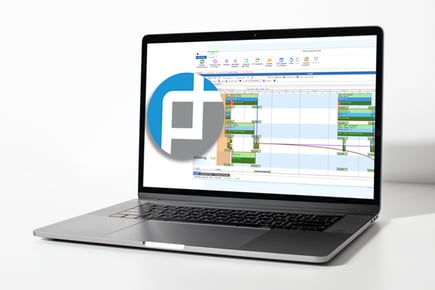The Power of Automation
In food and beverage manufacturing, where every minute counts and margins are tight, staying ahead of the competition requires a strategic approach to productivity and efficiency. Production schedulers are at the forefront of this challenge, tasked with balancing various factors such as demand fluctuations, resource constraints, and operational complexities.
Fortunately, advancements in technology have paved the way for automation solutions that can revolutionize the way production scheduling is handled. By integrating advanced planning and scheduling (APS) software like PlanetTogether with enterprise resource planning (ERP), supply chain management (SCM), and manufacturing execution systems (MES) such as SAP, Oracle, Microsoft, Kinaxis, Aveva, and others, production schedulers can unlock a new level of efficiency and productivity.
In this blog, we'll explore how automation can streamline operations, optimize resource utilization, and ultimately drive bottom-line results in food and beverage manufacturing facilities.

The Current Landscape: Challenges and Opportunities
Before looking into the benefits of automation, let's first examine the challenges faced by production schedulers in food and beverage manufacturing:
Demand Variability: Fluctuating consumer demand, seasonal trends, and market dynamics make forecasting a complex task.
Resource Constraints: Limited availability of raw materials, equipment, and labor can disrupt production schedules and lead to inefficiencies.
Complexity in Production Processes: Food and beverage manufacturing often involves intricate processes with multiple stages, making scheduling decisions more challenging.
Regulatory Compliance: Strict regulations related to food safety, quality control, and traceability add another layer of complexity to production scheduling.
Despite these challenges, there are also opportunities for improvement, particularly through the adoption of automation technologies.

The Power of Automation in Production Scheduling
Automation offers a range of benefits for production schedulers, including:
Improved Accuracy: Automated scheduling algorithms can analyze vast amounts of data to generate precise production schedules, taking into account various constraints and objectives.
Optimized Resource Utilization: By aligning production schedules with available resources, automation helps minimize downtime and maximize equipment and labor utilization.
Enhanced Flexibility: Advanced scheduling software can quickly adapt to changes in demand or supply, allowing production schedulers to make real-time adjustments and optimize efficiency.
Reduced Lead Times: Streamlined scheduling processes result in shorter lead times, enabling faster response to customer orders and reducing time-to-market.
Better Decision-Making: Automation provides production schedulers with actionable insights and scenario analysis, empowering them to make informed decisions that drive efficiency and profitability.

Integration with ERP, SCM, and MES Systems
The true power of automation lies in its ability to seamlessly integrate with other systems across the manufacturing ecosystem. By connecting APS software like PlanetTogether with ERP, SCM, and MES systems such as SAP, Oracle, Microsoft, Kinaxis, Aveva, and others, production schedulers can achieve a holistic view of operations and unlock synergies that drive continuous improvement.
Integration allows for:
Real-Time Data Exchange: Production schedules can be dynamically updated based on real-time data from ERP, SCM, and MES systems, ensuring alignment with current inventory levels, production capacities, and order statuses.
End-to-End Visibility: Production schedulers gain visibility into the entire supply chain, from raw material procurement to finished product delivery, enabling better coordination and planning.
Automated Workflows: Integration automates data transfer and eliminates manual tasks, reducing the risk of errors and freeing up time for production schedulers to focus on strategic activities.
Cross-Functional Collaboration: Seamless communication between different departments, such as production, procurement, and logistics, facilitates collaboration and enables faster decision-making.
In the competitive landscape of food and beverage manufacturing, automation is no longer a luxury but a necessity for driving productivity and efficiency. Production schedulers play a pivotal role in harnessing the power of automation to optimize production schedules, maximize resource utilization, and deliver superior results.
By integrating advanced planning and scheduling software like PlanetTogether with ERP, SCM, and MES systems, production schedulers can streamline operations, improve decision-making, and ultimately, position their organizations for success in the digital age.
Embracing automation is not just about adopting new technology; it's about transforming processes, empowering employees, and driving continuous improvement across the entire manufacturing ecosystem.
Are you ready to take your manufacturing operations to the next level? Contact us today to learn more about how PlanetTogether can help you achieve your goals and drive success in your industry.